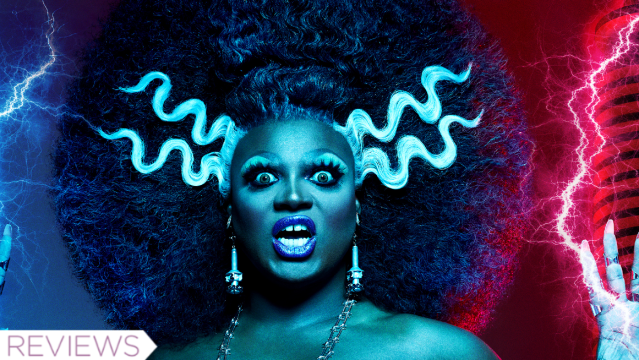Shudder documentary series Queer for Fear: The History of Queer Horror has only four episodes to dig into everything its title implies — so instead of a rapid-fire encyclopaedia, it wisely aims to be more of a curated cross-section focusing on specific moments and trends in horror history. Impeccable editing and a diverse array of talking heads further elevate it above the usual clip-show fare.
Also elevating the series: the fact that Bryan Fuller — the man who fanned the flames of thousands of “Fannibals” during Hannibal’s lip-smacking run — is one of Queer for Fear’s directors and executive producers, as well as one of its talking heads; you can see his influence on the series’ visual style, a striking blend of creepiness and elegance. Queer for Fear is also notable for not just focusing on movies; the title promises “queer horror” and it dives right in with episode one, which explores the lives of some of gothic literature’s most beloved creators — including Oscar Wilde, Bram Stoker, and Mary Shelley.
Their influence carries over into a discussion of the early Universal Monsters movies — particularly the works of James Whale, who was as open about his queerness as a person could be in 1930s Hollywood, both in his personal life and in his films (as Queer for Fear amply illustrates with Bride of Frankenstein). Episode two digs into Alfred Hitchcock, with an emphasis on films like The Birds, Rope, Strangers on a Train, and especially Psycho. Anthony Perkins’ son, horror director Oz Perkins (The Blackcoat’s Daughter, Gretel & Hansel), offers his own recollections of what life was like for his father — who spent most of his Hollywood career in the closet, despite his close identification with the decidedly queer-coded character of Norman Bates.
While Queer for Fear does take a literal approach to some of its interpretations, pointing out characters who read as obviously gay in films like (Whale again!) The Old Dark House and (Hitchcock again!) Rebecca, it’s at its strongest when it examines the queer subtext that is so frequently present in the horror genre. Because horror movies tend to be marginalised and not viewed as “serious” cinema, they have more leeway to offer subversive social commentary — something genre fans have long realised, and something queer fans in particular have long appreciated. Particularly powerful are the documentary’s investigations into what that subtext means for viewers — especially back when the films were first released, long before Hollywood at large realised the importance of queer representation, and even when the portrayal of gay (or more often, coded-gay) characters wasn’t exactly flattering. And Queer for Fear doesn’t simply rush through its examples. In its section on Dracula, for instance, it examines how the iconic vampire’s onscreen portrayals by Bela Lugosi and Gary Oldman are often, as filmmaker Karyn Kusama (Jennifer’s Body) points out, an extension of the book’s “expression of a fear of queerness,” referring to Stoker’s complicated legacy as a (probably) gay man who fearfully remained in the closet.
Along with Kusama, Perkins, and Fuller, Queer for Fear’s outstanding interviewees also include Mark Gatiss (Dracula, Sherlock), Kimberly Peirce (Carrie, Boys Don’t Cry), Justin Simien (Bad Hair, The Haunted Mansion), Leslye Headland (Russian Doll, The Acolyte), and many, many more — including drag icon Alaska Thunderfuck, who does a dramatic Mary Shelley reading clad in maybe the most glamorous riff on Carrie White’s gory prom dress ever worn.
io9 only got a chance to screen the first two Queer for Fear episodes, but the remaining two will cover “the ‘lavender scare’ alien invasion films of the mid-20th century to the AIDS obsessed bloodletting of ‘80s vampire films” as well as “genre-bending horrors from a new generation of queer creators,” according to a Shudder press release. Even with its focused approach, that still feels like a lot to pack into two-ish hours; you get the sense that the series could have run for many more than four installments. Maybe Shudder will make that happen?
Queer for Fear’s first episode arrives September 30 on Shudder, with the remaining three episodes arriving weekly thereafter.
Want more Gizmodo news? Check out when to expect the latest Marvel and Star Wars releases, what’s next for the DC Universe on film and TV, and everything you need to know about House of the Dragon and Lord of the Rings: The Rings of Power.
